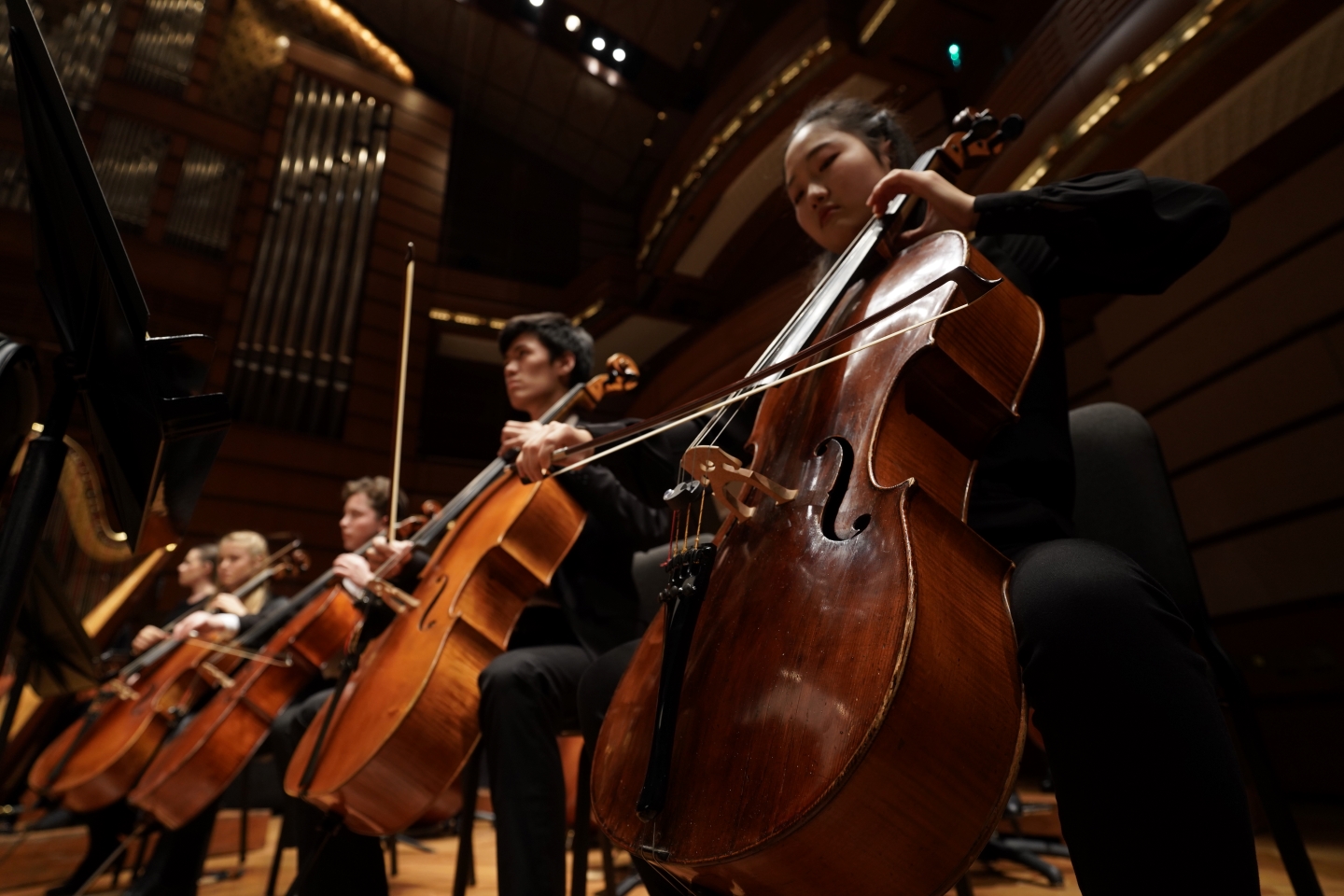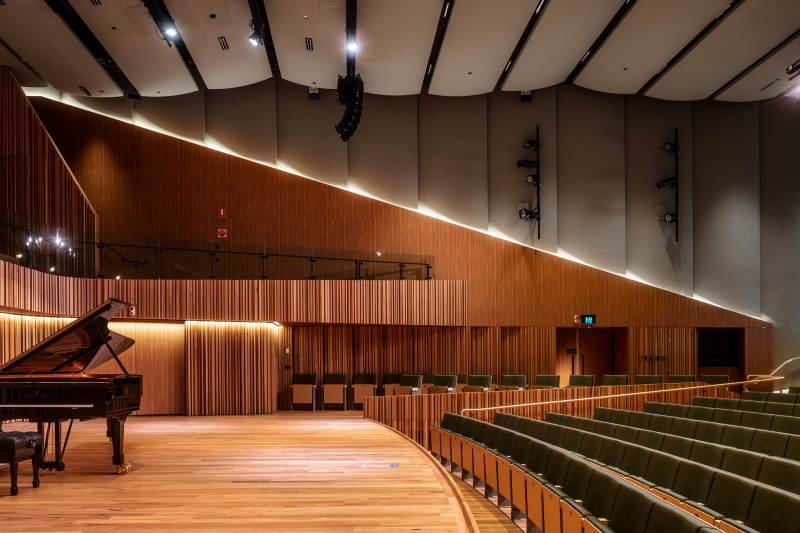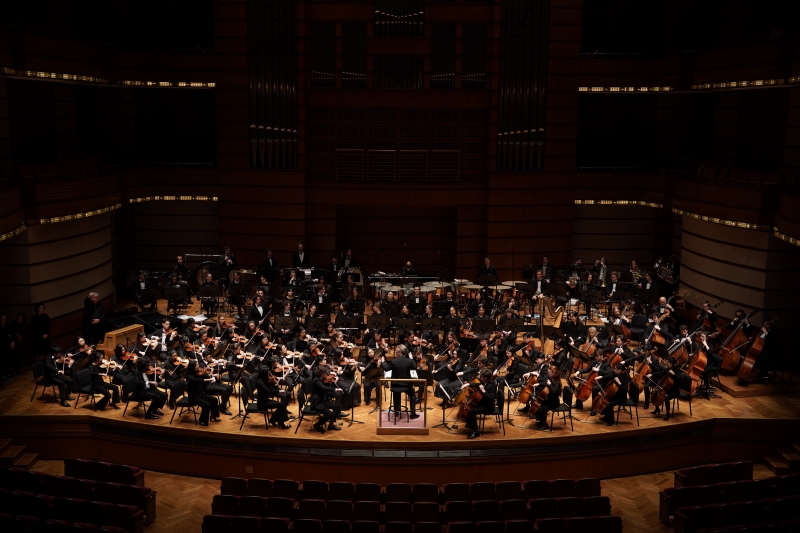
The University of Melbourne Symphony Orchestra includes more than 100 of the finest students from the orchestral training programme at the Melbourne Conservatorium of Music
The city of Melbourne dances to a rhythm, a metrical beat modulated by the synchronisation of a diverse community. It hums with conversation at the local cafés and vibrates with the regular rumble of trains and trams. Each day more than five million inhabitants move their feet to the drumbeat of Melbourne in the morning.
From grand concert halls to world-class museums, from thoroughfares to alleyways, art is everywhere. Melbourne is magnetic; attracting artists, musicians and other creatives from around the world, who flock to the shores of this vibrant coastal capital. Theatre kids take the stage, ballerinas lace their slippers. For writers, artists and designers, Melbourne is their muse.
photo_1.jpg

The centre of the city is characterised by the Arts Precinct. Melbourne houses exceptional academic institutions, which form the creative core of the cultural capital of Australia. Beside the sparkling Yarra River sits the University of Melbourne’s Southbank campus — and the Faculty of Fine Arts and Music.
The Faculty is home to both the Victorian College of the Arts and the Melbourne Conservatorium of Music, and partners with some of the sector’s most venerable icons and institutions — Arts Centre Melbourne, Melbourne Theatre Company, Australian Chamber Orchestra, Australian World Orchestra, the Australian Broadcasting Company and the National Gallery of Victoria.
Not only does this ensure the university pulses with the energy of an evolving sector, but also equips students with the technical expertise, hands-on experience and access to global networks required to flourish in the international arts scene.
In September, the University of Melbourne Symphony Orchestra — including more than 100 of the finest students from the orchestral training programme at the faculty’s Melbourne Conservatorium of Music — performed in Kuala Lumpur as part of an international tour.
Professor Richard Kurth, director of the Melbourne Conservatorium of Music, says, “The tour has accelerated the musicians’ performing experience and built the Conservatorium’s connections with partners in the Asia Pacific Region.
“This tour provided students an inspiring platform to hone their skills, showcase their work in one of Asia’s most vibrant cities and an opportunity to learn from peer institutions in Kuala Lumpur. We were thrilled to share our energies with the musical public and with the University of Melbourne alumni communities in Malaysia.”
m3265c_6045_rtrevor_mein_2019.jpg

Led by world-renowned conductor and associate professor Richard Davis, the orchestra charmed the crowds with three works, each representing their own unique musical idioms and historical-cultural contexts.
Malaysians who attended the concert at Dewan Filharmonik Petronas were treated to the world premiere of Hun Tur (2023) by composer Dr Melody Eötvös, who is a senior lecturer at the conservatorium. “The composition was written especially for the University of Melbourne Symphony Orchestra’s tour and draws inspiration from my Hungarian ancestry and research into folk music,” she says. “This is reflected in the title with 'Hun' — a reference to Hungary’s often misidentified early history (as having something to do with the Huns) — and 'Tur' — a reference to the Turul Bird, a creature central to Hungarian mythology.”
The composition was followed by Piano Concerto No 1 (1961) by Argentine composer Alberto Ginastera, featuring conservatorium masters student Timothy Kan as soloist, and the expansive and majestic Symphony No 1 (1887–1898) by Austrian composer Gustav Mahler.
vd103673.jpg

Touring internationally provides students with valuable experience on world stages with diverse audiences. “With live music, no two performances are ever the same,” shares Davis. "Performing on tour requires a completely new set of skills which the students will have to learn quickly. At home, our players may meet a couple of times a week, but on tour, it’s 24/7. Performers are managing jet lag, different cities, hotels and new cultures; the one common denominator is the concert platform. Students begin to feel ‘at home’ on stage.
“Nerves dissipate, and — together — the ensemble reaches heightened levels of skill and interpretation. The orchestra achieves an understanding of what is required to play in a global setting and an elevated ensemble standard.”
The Faculty of Fine Arts and Music attracts students from around the world and has a strong Malaysian alumni community. Yiing Yiing, a Malaysian graduate who completed her bachelor’s and master’s degrees in music (the latter in performance teaching) shares, “It was only natural for me to choose the University of Melbourne for my undergraduate and postgraduate studies because Melbourne has always been my favourite city.
"The staff members are diverse and highly qualified — and the Faculty of Fine Arts and Music offers many events, activities, and performances. My piano teacher at the conservatorium, Ian Holtham, is a Steinway artist, and he shaped me into the pianist I am today. The knowledge and skills he gave me were instrumental in my career, and I am glad I can now share what I have learned with my students.”
photo_6.jpg

As a result of this — and infinite other — opportunities, students from the University of Melbourne rank No 7 in graduate employability worldwide, according to the QS Graduate Employability list.
Reflecting on their time at the university, Yiing Yiing remembers, “There were weekly performance and concert classes where students were encouraged to perform, and they helped me feel more comfortable on stage. The tutorials for the various music subjects enabled me to gain more insight into the theoretical aspect of music and learn about different musical instruments. I also attended masterclasses conducted by various distinguished guests and staff members of the Faculty of Fine Arts and Music. The feedback and comments I received inspired me to ponder different aspects of music, which I still do today.”
“I had the greatest and most memorable time studying at the University of Melbourne, and I could not recommend it more. I truly enjoyed the lifestyle and cultural diversity, and if given the opportunity, I would relive my time there.”
The University of Melbourne is ranked No 1 in Australia and 14 in the world, according to the QS World University Rankings 2023. The prestigious and progressive university has a strong reputation for educational excellence. It provides the perfect ecosystem to equip its multicultural student cohort with real-world skills to innovate key industries, including the arts.
The University of Melbourne offers hundreds of scholarships for a diverse range of students each year.
Application closing dates for the start- and mid-year 2024 intake are Nov 30, 2023 and May 21, 2024, respectively. For more info, see here.



